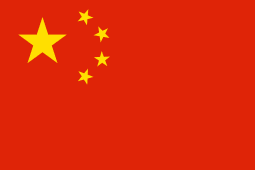![]()

January 21, 2019
Why IPv6 Will Not Be the Norm Anytime Soon
IP or Internet Protocol is what devices on the internet use to communicate with one another. Every device that is online has at least one address that identifies it, as well as where it is located on the globe. This technology has more than one version, and IPv6 is the current latest.
IP Addresses and IPv4
An IP address is analogous to a postal address, in that it contains a portion, which points to a specific global location. The first version, IPv4, was created in the 80’s, even before the whole world had ready access to the internet. Today, it is the primary way used to route traffic between online devices. Public IPv4 addresses assigned to specific devices comprise digits separated by periods. The four individual numbers forming this address can range from 0 to 254, which makes for 4.3 billion possible addresses. However, with the upsurge in devices these days, we are close to reaching the limit.
What is IPv6?

The main difference IPv6 carries is that it also uses letters in the address combination. That means a lot more possible addresses (340 undecillion) exist. Each address uses hexadecimal digits. The hexadecimal system runs from values of zero through 16 on each base, which is why there is so much more “space” available for devices in the future.
Why a Switch to IPv6 Will Not Be Happening Anytime Soon
There are five global registries managing IP addresses in the world, and four of them have run out of top-level addresses in the 2011-2015 period. Despite logic suggesting a move to IPv6, transition until this point has been minimal. This is mainly because of the bottleneck posed by ISPs who see IPv6 deployment costs as unjustified (current servers based on IPv4 would need to be upgraded, as would routers and switches).
What Other Solutions are Being Used
Most ISPs give out dynamic IP addresses as a workaround for IP address shortage. For the user, this is an IP address that changes periodically, usually each time they connect to a distinct network. Every time a device goes offline, it lets go of its dynamic IP address so that the latter can be used by another device in that region. This basically means that each user is renting the IP address which they use, as opposed to owning it. This system has been able to significantly stall IPv4 address depletion, and has given rise to a thriving IPv4 address leasing market.
Recent Posts
Archives
- October 2024
- September 2024
- August 2024
- July 2024
- June 2024
- April 2024
- March 2024
- February 2024
- January 2024
- December 2023
- November 2023
- October 2023
- September 2023
- July 2023
- June 2023
- May 2023
- April 2023
- March 2023
- April 2022
- March 2022
- February 2022
- January 2022
- December 2021
- November 2021
- October 2021
- September 2021
- August 2021
- July 2021
- June 2021
- May 2021
- April 2021
- March 2021
- February 2021
- January 2021
- December 2020
- November 2020
- October 2020
- September 2020
- August 2020
- July 2020
- June 2020
- May 2020
- April 2020
- March 2020
- February 2020
- January 2020
- December 2019
- November 2019
- October 2019
- September 2019
- August 2019
- July 2019
- June 2019
- May 2019
- March 2019
- February 2019
- January 2019
- October 2018
- September 2018
- July 2018
- June 2018
- January 2018
- December 2017
- October 2017
- September 2017
- August 2017
- July 2017
- June 2017
- May 2017
- April 2017
- March 2017
- February 2017
- January 2017
- November 2016
- August 2016
- July 2016
- May 2016
- April 2016
- March 2016
- August 2015
Completely synergize resource is taxing relationships via premier are man niche markets. Professionally cultivate one to one customer.
Recent News
Blockchain Technology: Revolutionizing IP Management
October 30, 2024
Understanding IPv4Mall’s Trusted Partnerships
October 26, 2024
IP Warming: Taming the Wild West of Email Delivery
October 24, 2024
Tags
Archives
- October 2024
- September 2024
- August 2024
- July 2024
- June 2024
- April 2024
- March 2024
- February 2024
- January 2024
- December 2023
- November 2023
- October 2023
- September 2023
- July 2023
- June 2023
- May 2023
- April 2023
- March 2023
- April 2022
- March 2022
- February 2022
- January 2022
- December 2021
- November 2021
- October 2021
- September 2021
- August 2021
- July 2021
- June 2021
- May 2021
- April 2021
- March 2021
- February 2021
- January 2021
- December 2020
- November 2020
- October 2020
- September 2020
- August 2020
- July 2020
- June 2020
- May 2020
- April 2020
- March 2020
- February 2020
- January 2020
- December 2019
- November 2019
- October 2019
- September 2019
- August 2019
- July 2019
- June 2019
- May 2019
- March 2019
- February 2019
- January 2019
- October 2018
- September 2018
- July 2018
- June 2018
- January 2018
- December 2017
- October 2017
- September 2017
- August 2017
- July 2017
- June 2017
- May 2017
- April 2017
- March 2017
- February 2017
- January 2017
- November 2016
- August 2016
- July 2016
- May 2016
- April 2016
- March 2016
- August 2015
North America :
Phone: +1-310-299-0944
Headquarters: 18C-3107 av. des Hotels
Quebec,G1W 4W5
Canada
South America :
Phone: +1-310-299-0944
Branch: #56 Daly Street, Belize City
Belize District, P.O. Box 1825
Belize











Recent Comments